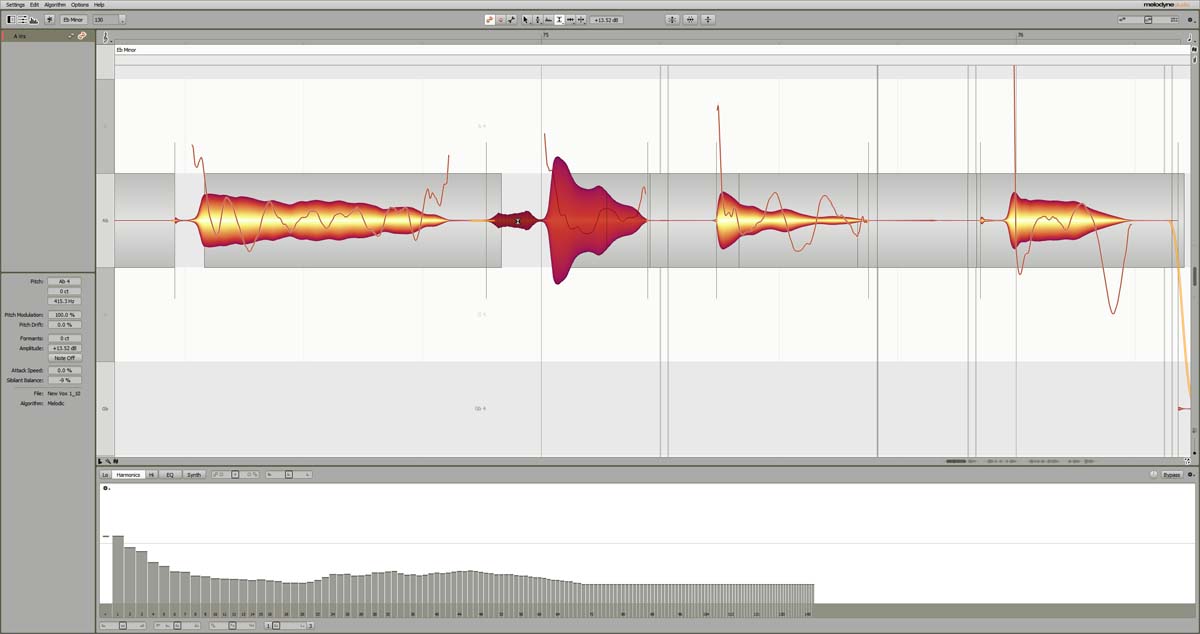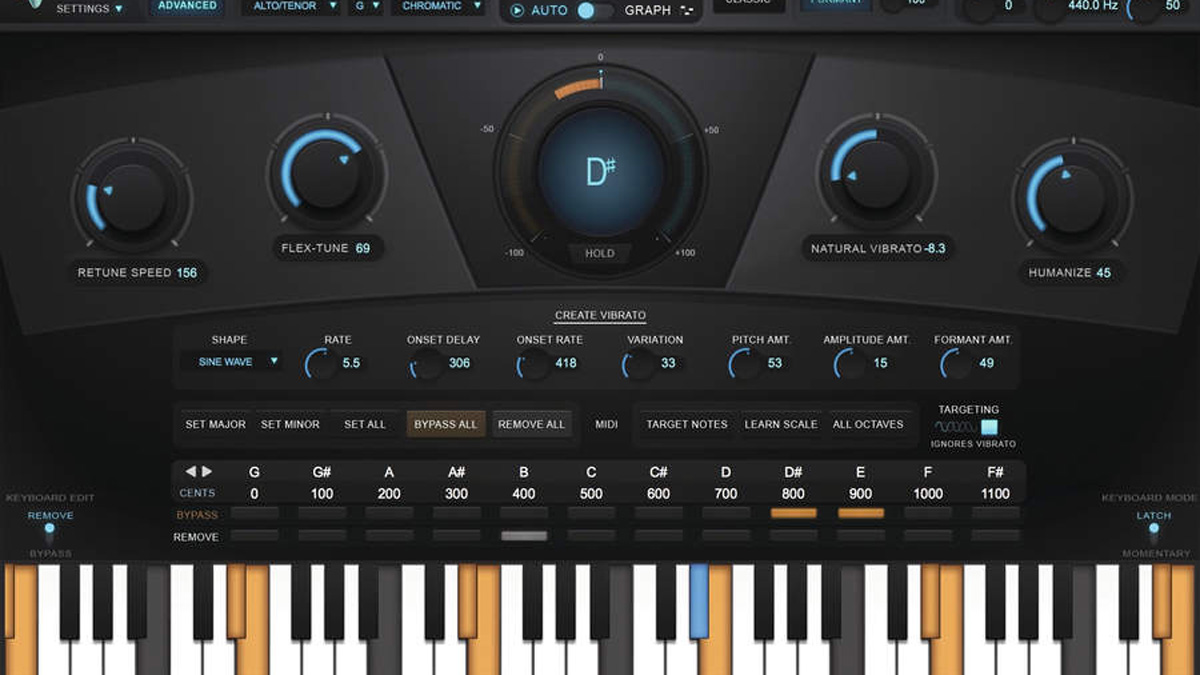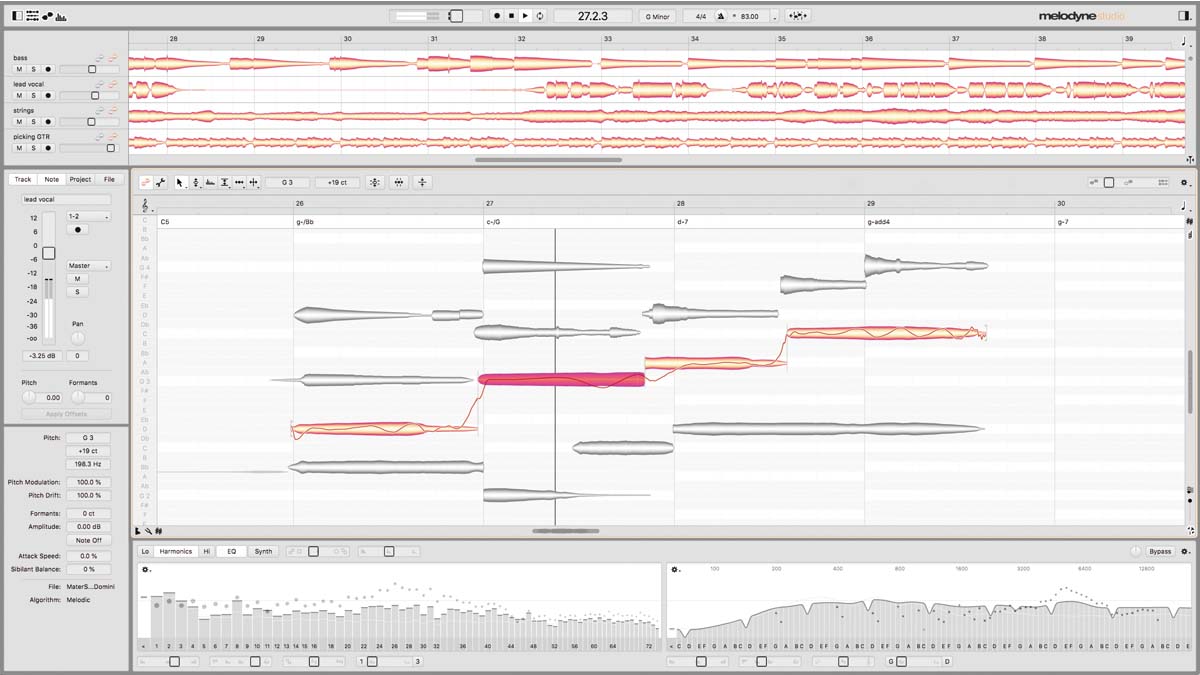MusicRadar Verdict
Melodyne 5 is powerful in all its versions, and remains an exceptional tool for manipulating audio in functional and creative ways.
Pros
- +
Improved ‘Melodic’ algorithm.
- +
Edit pitch and noise separately.
- +
Integration with ARA is excellent.
- +
Melodyne now feels like part of your DAW.
- +
Excellent new tools such as Sibilant.
Cons
- -
Polyphonic DNA and multitrack only in Editor and Studio versions.
- -
Still takes some user interaction to get the best out of it.
MusicRadar's got your back
What is it?
In a world where some tracks are dominated by heavily ‘auto-tuned’ vocals as a creative genre choice, a music technology outsider might be forgiven for thinking that there is little more to be explored on this front.
The truth is that, whilst there are valid ways for pushing this type of tool into robot-like territory, there are many times when the intention is for any processing to pass quietly under the radar. In other words, to provide plenty of scope for audio manipulation, but use clever scientific dexterity to make the results as natural as possible.
Celemony’s Melodyne has been at the forefront of this for nearly 20 years, and whilst most DAWs now offer some degree of graphical pitch editing, with ever-increasing degrees of flexibility and sophistication, Melodyne has maintained its position as a technology leader in this area.

Celemony introduced the groundbreaking manipulation of polyphonic material with their DNA technology back in 2009, and have been constantly improving this, and their monophonic tools.
However, one stumbling block for many was that moving audio between your DAW and Melodyne was not as fluid as employing similar (albeit less sophisticated) tools built into Cubase, Logic etc.
Luckily, thanks to the increasing adoption and sophistication of ARA (Audio Random Access), and Celemony’s role in its development, this barrier barely exists.
- Our pick of the best vocal plugins
Performance and verdict
I tested Melodyne 5.1 with Cubase 11, and the integration is exceptional. Comping of audio takes, moving of audio events and many other actions are updated and replicated so well between the DAW and Melodyne edit windows, as to make it appear part of the DAW itself.
Want all the hottest music and gear news, reviews, deals, features and more, direct to your inbox? Sign up here.
This upshift in the integration stakes is all the more important, as Melodyne 5 has added some new features that make it a candidate for remaining the ‘go-to’ tool for correcting and manipulating audio pitch, timing and levels.

• Antares Auto-Tune Pro
AT Pro is Auto-Tune in its most powerful, usable incarnation yet, and it easily maintains its position as one of the two best retuning solutions available; the other, of course, being Celemony’s Melodyne.
• Waves Vocal Bundle
At £725, the Waves Vocal Bundle is certainly a costly package. However, you need to bear in mind that Waves concentrate on top sound quality and ease of use rather then snazzy features.
• Synchro Arts Revoice Pro
If you can handle its workflow (and price), Revoice Pro is an incredible useful vocal doubling and manipulation tool.
The headline feature in Melodyne 5, is the new ‘Melodic’ algorithm, which now allows you to edit pitched and noise-based components (such as sibilants) separately – including the way in which they are moved when altering the timing of pitched notes.
The software now also makes a better job of analysing pitch deviations within a note and adds note-based fades. Combine this with the new Levelling Macro (for quick balancing between quiet and loud elements) and you have the perfect vocal finessing tool.
Melodyne isn’t just about vocals, however, and the Chord Track and Grid help with any type of material. You will also find the new ‘Percussive Pitched’ algorithm, DAW-oriented keyboard shortcuts and other smaller tweaks.
Melodyne 5 Studio offers the full panoply of multitrack polyphonic editing options, but, if you mainly work with monophonic material, the more affordable Melodyne 5 Assistant still delivers many of the essential new features. This a strong update to a great piece of software.
MusicRadar verdict: Melodyne 5 is powerful in all its versions, and remains an exceptional tool for manipulating audio in functional and creative ways.
The web says
"Melodyne 5 isn’t the only game in town when it comes to pitch and time manipulation but it may as well be. It’s so far ahead of the competition that there’s little point in any developer coming for the Celemony crown. But it’s not exactly cheap and you may be able to get away with built-in solutions in your own DAW or more affordable for simple tuning tasks"
MusicTech
Hands-on demos
Celemony
Specifications
- PRICING: Essential – €99, Assistant – €249, Editor – €399, Studio – €699
- KEY FEATURES: Edit pitched and noise components separately with ‘Melodic’ algorithm. More musical analysis of pitch deviations. Chord Track and Chord Grid. Fade Tool and Levelling Macro. ‘Percussive Pitched’ algorithm plus other algorithm improvements.
- CONTACT: Celemony
